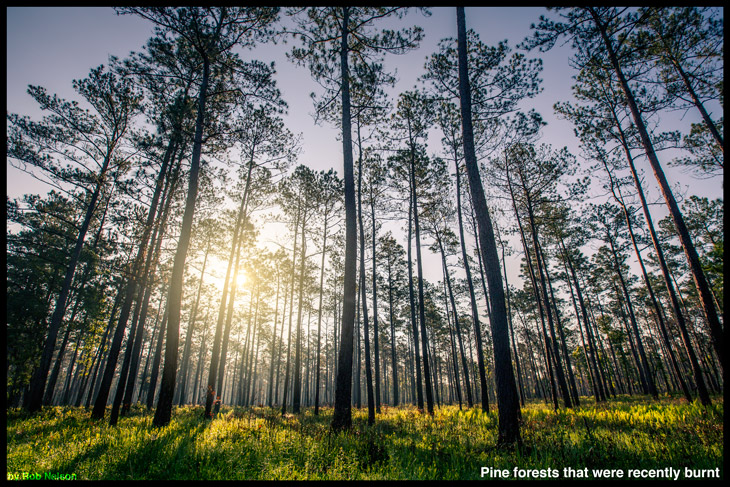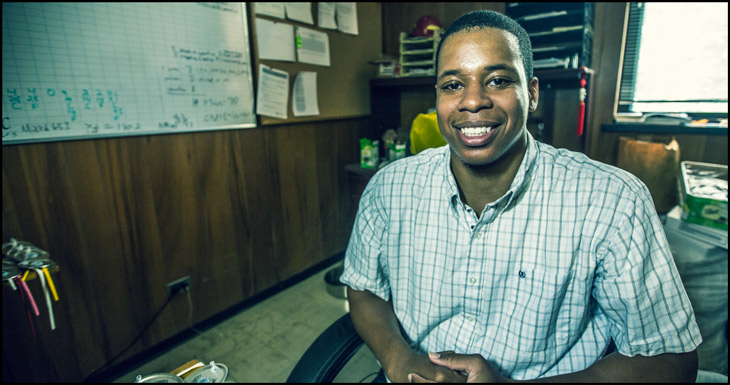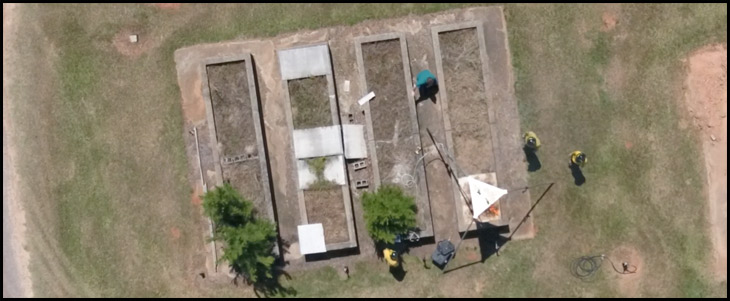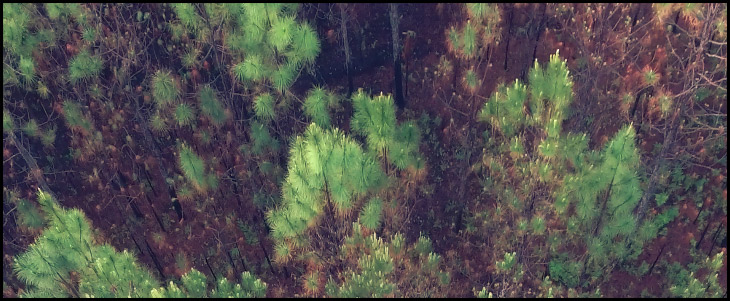If you were a tree, what would you be?
I would be a longleaf pine. What is interesting about longleaf pines, as opposed to other pines, is its grass stage. Longleaf spend time developing below ground biomass (roots) before growing in height. Like me, the longleaf waits for the perfect time to take full advantage of their situation; this gives them a lot of success and allows them to grow straight and become relatively more resilient.
Could you summarize what you do with fire?
I study black carbon, which is produced from fire. I am interested in how much black carbon is being produced, how long it stays in the soil, and where it goes after it leaves the soil? Black carbon is growing in interest because of global warming. The IPCC report has black carbon as the second largest factor contributing to global warming after CO2. I believe that in fire-adapted ecosystems fire is not only releasing CO2 but also transforming carbon that could end up in the atmosphere quickly into a slower moving black carbon that stays in the soil for years.
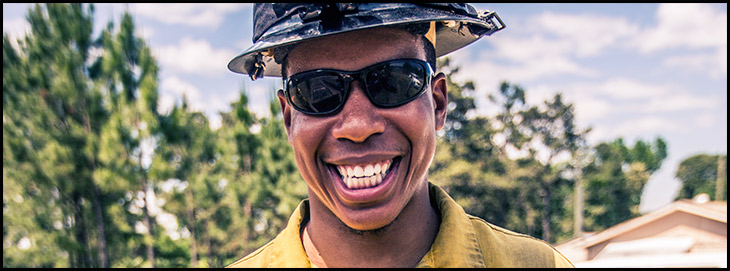
What does a typical field day look like?
This is in interesting question because my field days are anything but typical. Some days, I am walking miles dragging fire through the woods, establishing a baseline for a controlled burn. Some days, I am in the helicopter checking the smoke and the fire. We check the smoke to make sure it’s going in the direction that the weather predicted and not settling down, impacting people. We look around the perimeter of the fire from the helicopter to make sure it hasn’t escaped. Other days, I am assisting my boss on a multitude of projects; for example I assist in setting up infrared cameras in the woods to measure energy release from fire.
What inspired you to start doing this?
I started in a summer internship as a wildland firefighter in hopes of paying back my school tuition. Right before graduating from undergrad, I was presented with an opportunity to do a presentation for the director of the USFS Southern Research Station. This opportunity allowed me to go to grad school and start looking at fire more holistically. As I began to grow in my fire career and life, I began to wonder, “what’s the impact of lighting these fires?” I used to only want to put fire on the ground, and then I realized the way and rate that fire is applied has many different impact on different ecosystem processes (e.g. water cycle, nutrient cycling, community dynamics).
Why do you think it’s important?
I think prescribed fire is very important for many reasons: reducing hazardous fuels, site prep for seedlings, improving wildlife habitat, managing competing vegetation, disease control, nutrient cycling, and managing endangered species.
What do most people not know about fire and fire science?
I think most people don’t truly understand the amount of good that fire does to many ecosystems. Fire can be catastrophic, and that is usually when it gets the most attention, but those are rarer events as opposed that the good that fire is doing the rest of the time. Fire tends to get publicized when it’s destroying homes or killing people, but that’s not what happens most of the time. Another point would be that some ecosystems wouldn’t exist without catastrophic fires, so mixture in fire intensity isn’t always a bad thing. Most people don’t know that fire science is a growing field, and we need more scientists and science collaborations to answer some of the big questions. A career as a fire scientist should be considered more often.
What is the most rewarding thing about doing this work?
I think the most rewarding thing about working with fire and trying to better understand it and its impact on this Earth, is the fact that what you are working on is bigger than yourself. Decisions that we make now could potentially mold the future of this landscape for many generations to come.
What if others want to help our forests – how can they help?
People can help by spreading the word of what they are learning about deforestation and its impact on the forests. They can also recycle and re-use more items to weaken the demand for forest products. If you have more time, I would recommend joining an environmental group that has values that are in agreement with your own.
Finally, do you have any advice for a young student wanting to get into this field?
I would tell them that this is a cool way to get out of the office and get a more thorough understanding of nature. The demand is continually growing and fire isn’t going anywhere, so this is a great field to get into.

